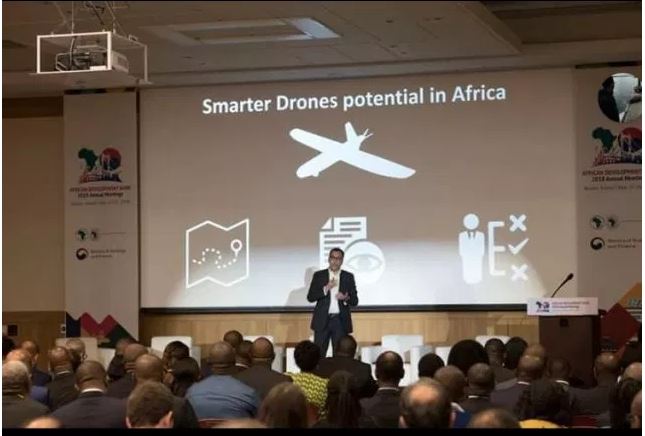Thuletho Zwane
Industrialisation of Africa’s economies is critical in order for the continent to curb its high youth unemployment. Analysts say the only way to secure future youth employment is for African governments to prepare their youths for “jobs of the future” and to also support small to medium enterprises (SMEs).
Speaking at the 2018 African Development Bank’s (AfDB) Annual Meetings, a member of the AfDB Presidential Youth Advisory Group and CEO of Agrolay Ada Osakwe said African countries had no choice but to transition from jobs of the past to jobs of the future.
“And this, in a lot of ways, has to do with up-skilling our youth. Skills in science and technology, information technology, big data and artificial intelligence will make some of the core requirements for employment and enterprise development,” said Osakwe.
She said the continent’s youth needed to bring innovative solutions to fix problems faced by African countries.
This is why the story of Morrocan tech entrepreneur, Badr Idrissi, is a good one.
Idrissi co-founded ATLAN Space, a start-up that uses artificial intelligence and drone technology to fight illegal fishing.
He was one of four African entrepreneurs who spoke at the “Bridging innovation industries: African youth solving continental challenges” session hosted at the 2018 AfDB annual meetings in Busan, South Korea.
Environmental and ecological threats such as illegal fishing, poaching and deforestation faced by many African countries are what inspired Idrissi to establish his software start-up. These issues result in a large percentage of fishing activities, especially those off the West African coast, resulting in huge economic losses.
These countries do not have the capacity to have satellite surveillance on the sea for each square-kilometre.
“The Overseas Development Institute shows that even though illegal fishing is a worldwide phenomenon, it is much more dramatic for African countries. For west African countries, illegal fishing costs governments US$1.4bn every year and destroys 300,000 jobs, ” said Idrissi.
Chair of the AfDB Presidential Youth Advisory Group Ashish Thakkar acknowledged that there was a much more positive attitude towards youth entrepreneurship and women entrepreneurs on the continent.
“This is because Africa has come to realise that the answer to unemployment is no longer foreign direct investments (FDIs) or large industrial projects. The answer to unemployment is to truly nurture small to medium enterprises and that is where the youth plays a critical, critical role,” he said.
In Kenya, a young banker, Lorna Rutto, quit her job to co-found EcoPost, a social enterprise that has created thousands of sustainable jobs for people in marginalized communities, in addition to conserving the environment.
EcoPost has so far transformed over 3 million kilograms of plastic waste into plastic lumber, saved over 500 acres of forest and helped mitigate climate change in Kenya.
Idrissi and Rutto’s start-up companies have been commended by AfDB President Akinwumi Adesina who urged young entrepreneurs to keep converting challenges faced by the continent into opportunities.
“Young people are not just the future of Africa, they are the present,” said Adesina. “They represent entrepreneurship and energy. This must be nurtured, harnessed and scaled up to propel Africa’s industrial revolution and the Bank is here to harness that.”
Rutto said she was inspired by what she thought was going wrong in her community.
“Trees were being cut down and plastic waste was all over the place. It was very scary for me to resign a good bank job, but I had to fulfil my ambition as an entrepreneur. That was when I developed the idea that waste was a resource and not a thing to throw away,”said Rutto.
Watch the video here: Bridging Innovation Industries: African Youth Solving Continental Challenges






